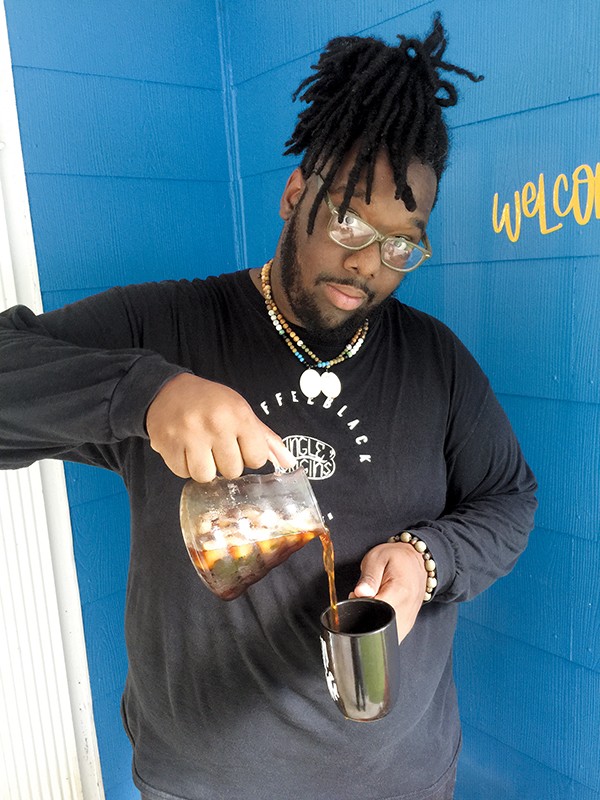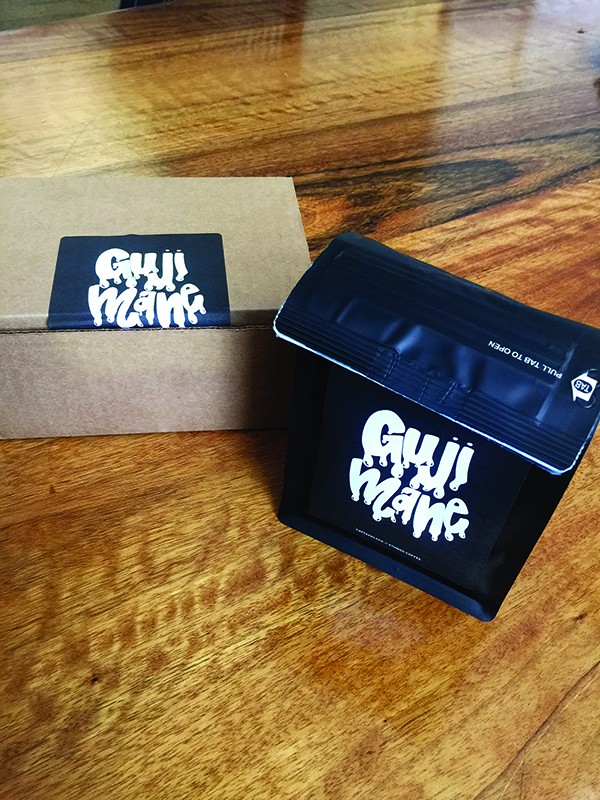Bartholomew Jones wants to “make coffee black again.”
Jones, 28, is the creator of the website cxffeeblack.com, which he describes as “a lifestyle brand and a social experiment — just asking and trying to answer the question, ‘Why aren’t there more black people in specialty coffee? And what would happen if there were?’
“If you go to Ethiopia right now, coffee is offered to you the same way the British serve tea. Three times a day.”
 Michael Donahue
Michael Donahue
Bartholomew Jones
But, Jones says, “In America, coffee is not seen as a black drink.”
Cxffeeblack.com offers coffee and coffee-related products and information “as a way to spark a movement for black people to reclaim high-quality coffee as a part of our culture,” he says.
Growing up in Whitehaven, Jones, who was born Maurice Henderson II, watched his dad drink Folgers and other “regular coffee.” But his father also drank Starbucks Kenyan coffee “before it was cool to get into Starbucks.”
Jones drank coffee at his church, but, he says, “I would try to cover it up as much as possible with cream and sugar. The powdery cream. Just scoop as much of it as I could to hide the fact that it was coffee.”
Jones, a hip-hop artist, also spent late nights in coffee shops working on his music. He began to wonder why he didn’t see more black people in the shops. “I was the only black person there,” he says.
He tried his first Americano — a double shot of espresso and hot water — and began to explore why some espressos taste better than others.
In 2012, Jones met his wife, Renata Henderson, at one of his hip-hop shows. He asked her, “Hey, do you like coffee?”
“She said, ‘Yes.’ I told her, ‘Cool. I know the best spot that has the best lattes.'”
A year later, they were married. That Christmas, Henderson gave Jones his first espresso machine. “From that, I bought seven different coffee makers, [including] Kalita Wave, V60, Aeropress. That lead me to more ‘why’ questions. Why is this coffee better than others?”
He became friends with a Latino barista at Avenue Coffee. “They have a lot of other dope baristas there. Them having a diverse staff made me feel more comfortable asking questions.”
Jones began playing shows at Avenue Coffee. He threw in “coffee references here and there” in his songs, including “No Sugar No Cream” and “Americano.”
Black people showed up at his shows, but not as customers at the shop, he says. A lot of coffee shops resembled the coffee drinks he used to order. “There was a lot of cream.”
Jones began serving coffee to friends at his house. They’d listen to music and drink black coffee. “I was starting to see people say, ‘Hey, this is not bad without sugar or cream.'”
Jones, who got a job as a barista at Society Memphis, originally started Cxffeeblack on Instagram as a way to bring awareness of specialty coffee to his community through music.
The “x” in Cxfeeblack stands for the “x” slaves used as their last name after emancipation, Jones says. It also pertains to himself. “As a connection to my ethnic identity.”
Jones partnered with a roaster, Kenny Baker from Ethnos Coffee. They collaborated on their first coffee, Guji Mane. Jones describes the taste as “ripe raspberries on your granny’s caramel cake and the mouthfeel of flan from your homie’s abuelita, which is ‘grandma’ in Spanish.”
They sold 30 pounds of Guji Mane in 10 days. “All word of mouth. Eighty to 90 percent to people of color.”

In addition to the coffee, on cxffeeblack.com, Jones is offering T-shirts and mugs hand-lettered by his wife. He’s in the process of “creating an all-black line of products.”
Jones plans to one day have his own roasting equipment at home and eventually open his own brick-and-mortar shop.
He wants people to do more than just drink his coffee. He wants them to learn from it. “By learning about coffee’s origins, we might learn about our own origins.”